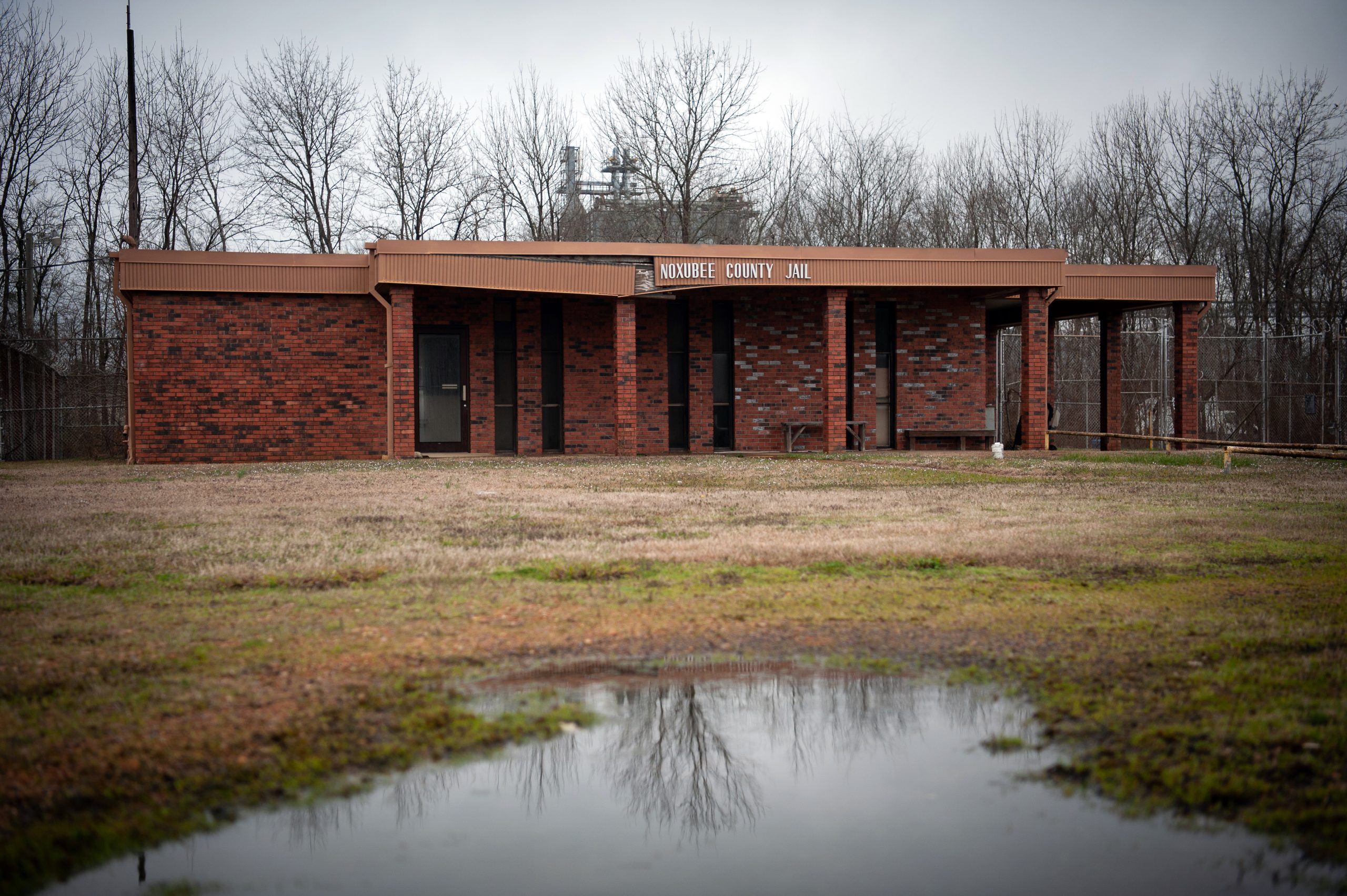Mississippi Today
Sex Abuse, Beatings and an Untouchable Mississippi Sheriff
Sex Abuse, Beatings and an Untouchable Mississippi Sheriff
Terry Grassaree was dogged for years by questions about how he did his job as a law enforcement officer in Macon, Miss., a tiny, rural town near the state’s eastern border.
There were allegations of rape inside the jail that Mr. Grassaree supervised, and lawsuits claiming that he covered up the episodes. At least five people, including one of his fellow deputies, accused him of beating others or choking them with a police baton.
Mr. Grassaree survived it all, rising in the ranks of the Noxubee County Sheriff’s Department, from a deputy mopping floors, to chief deputy, to the elected position of sheriff, making him one of the most powerful figures in town.
Now, more than three years after losing an election and retiring, and 16 years after a woman first claimed that Mr. Grassaree pressured her to lie about being raped, the former sheriff faces criminal charges.
A federal indictment filed in October accuses him of committing bribery in 2019, near the end of his eight-year tenure as sheriff, and of lying to federal agents when they questioned him about whether he requested sexually explicit photographs and videos from a female inmate. Mr. Grassaree has denied the charges and pleaded not guilty.
But an investigation by the Mississippi Center for Investigative Reportingat Mississippi Todayand The New York Times reveals that allegations of wrongdoing against Mr. Grassaree have been far more wide-ranging and serious than those federal charges suggest. The investigation included a review of nearly two decades of lawsuit depositions and a previously undisclosed report by the Mississippi Bureau of Investigation.
At a minimum, the documents detail gross mismanagement at the Noxubee County jail that repeatedly put female inmates in harm’s way. At worst, they tell the story of a sheriff who operated with impunity, even as he was accused of abusing the people in his custody, turning a blind eye to women who were raped and trying to cover it up when caught.
Over nearly two decades, as allegations mounted and Noxubee County’s insurance company paid to settle lawsuits against Mr. Grassaree, state prosecutors brought no charges against him or others accused of abuses in the jail. A federal investigation dragged on for years, and led to charges last fall, a few weeks after reporters started asking authorities about the case.
Even now, no higher authority has reviewed how Mr. Grassaree ran the jail or whether his policies endangered women, because in Mississippi, as in many states, rural sheriffs are left largely to police themselves and their jails.
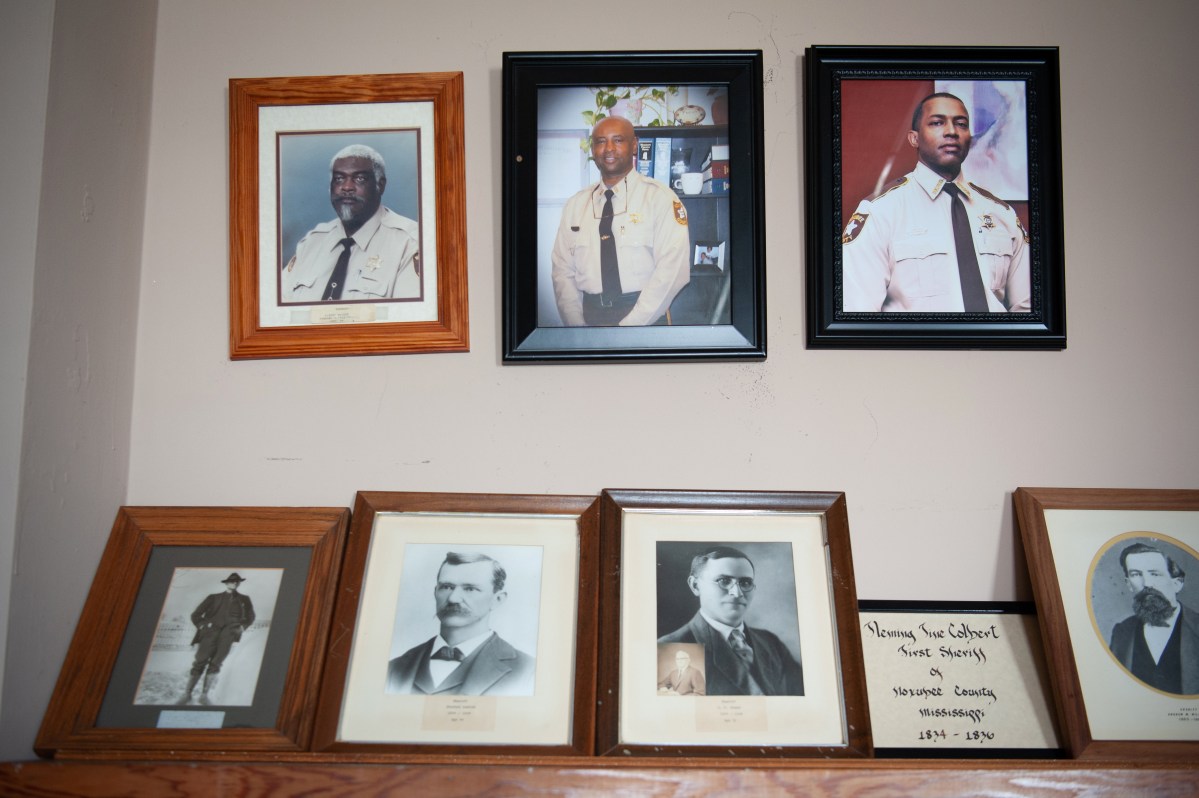
In 2006, after Mr. Grassaree and his staff left jail cell keys hanging openly on a wall, male inmates opened the doors to the cell of two women inmates and raped them, according to statements the women gave to state investigators. One of the women said Mr. Grassaree pressured her to sign a false statement to cover up the crimes, according to the state police report that has never been made public.
About a year later, in a lawsuit, four people who had been arrested gave sworn statements accusing Mr. Grassaree of violence. Two of the people said he choked or beat them while they were in his custody. A third said he pinned her against a wall and threatened to let a male inmate rape her.
In 2019, a jailed woman told investigators that she had been coerced into having sex with two deputies who offered her a cellphone in exchange for her compliance. Instead of punishing the deputies, she claimed in a lawsuit against the county, Mr. Grassaree demanded that she send him explicit pictures and videos of herself. The federal indictment also accuses Mr. Grassaree of using his cellphone to facilitate a bribe, which experts say could have been the perks the woman says she received.
All told, at least eight men — including four deputies and Mr. Grassaree himself — have been accused of sex abuse by women inmates who were being held in the Noxubee County jail while Mr. Grassaree was in charge.
Over the years, the accusations of rape and other misconduct at the jail have been investigated separately by the FBI, the Department of Justice and the Mississippi Bureau of Investigation. No rape or assault charges have been filed.
Mr. Grassaree has denied all of the allegations against him and has faced no disciplinary action. His lawyer declined to comment further.
Holding people accountable for rapes and assaults behind bars is difficult under the best of circumstances. There is little to protect incarcerated victims and witnesses from retaliation for speaking up. When they do come forward, they are often dismissed as not credible, especially if the person accused is a law enforcement officer.
What happened inside the Noxubee jail, and how the authorities responded, is a case study in how those difficulties can be even harder to surmount in rural places, where jails are the exclusive domain of a county sheriff who operates largely without oversight.
No state agency oversees Mississippi’s county jails, and no state regulator has the authority to fine a sheriff for endangering people in custody or for failing to train the staff who operate the jail. In 2017, state lawmakers stopped providing funds for jail inspections by the Mississippi Department of Health, removing even the basic requirement that the facilities meet food safety and cleanliness requirements.
“They are closed-off institutions, and the people held inside them are unpopular and politically powerless,” said David Fathi, director of the American Civil Liberties Union National Prison Project. “That makes them ripe for neglect and abuse that is entirely foreseeable.”
Scott Colom, the elected district attorney for Noxubee County, took office in 2016 and was not involved in the investigation of the 2006 rape allegations.
After learning of the more recent allegations against Mr. Grassaree and his deputies, Mr. Colom said, he notified federal authorities and worked with them on an investigation. Although he believed the evidence against Mr. Grassaree in the case was “clear and strong,” Mr. Colom said he knew it would be tough to seat an impartial jury in Noxubee County. He has twice been forced to cancel criminal trials because there were too few potential jurors available, he said, and neither of those cases involved a public official.
Darren J. LaMarca, U.S. attorney for the Southern District of Mississippi, declined to comment on the case and so did others responsible for investigating the alleged abuses in the Noxubee County jail.
Mr. Grassaree spoke briefly in an interview about his professional history, but would not answer detailed questions about the 2006 rape cases or the more recent allegations related to his federal charges.
Mary Taylor, a retired dispatcher who worked full time at the jail from 1988 to 2017, said in a phone interview that in her years at the jail she never witnessed any sexual abuse.
She said she wasn’t working on the day the two women said the rapes took place in 2006, but that she doesn’t believe their version of events.
“My belief? They weren’t raped,” Ms. Taylor said. “They did that to get out of jail.”
She maintained that it’s “impossible for one man to rape a woman, unless she’s not moving, unless it’s a Bill Cosby thing.”
“They could have yelled out and told somebody,” she said. “You can’t rape the unwilling.”

Building a tough reputation
When Terry Grassaree was born in Macon in 1962, the idea that he could one day be sheriff seemed far-fetched.
In Macon, which briefly served as Mississippi’s capital during the Civil War, only white men worked as law enforcement officers in those days. The county had a long history of violence against African Americans, including the massacre of 13 Black Mississippians at a church, gunned down by nightriders on a single August night in 1871. The sheriff at the time arrested no one.
Though the county’s population is mostly Black, every sheriff elected in Noxubee County was white until 1988, when Albert Walker became the first Black man to hold the office. Mr. Grassaree, his handpicked successor, was the second.
Mr. Grassaree started his law enforcement career as a police officer in Macon and in nearby Brooksville, and sold insurance on the side to help make ends meet. Sheriff Walker hired him as a county deputy in 1992 and put him to work mopping floors, among other duties, at the county jail. Mr. Grassaree was also a deputy coroner, paid $85 for each body he handled.
He worked his way up to chief deputy, and took on running the jail.
Mr. Grassaree, known to keep order by issuing physical threats, said in an interview last year that he drew inspiration from the professional wrestler “Stone Cold” Steve Austin.
“Even while they were whipping him, he was still the toughest guy on the mat,” Mr. Grassaree said. “He’s like, ‘Is that all you’ve got?’ No matter how long a man whips you, he will get tired. He might think he’s winning. The only thing you’ve got to do is hold out.”
This idea, he said, became the foundation for how he behaved when he put on his uniform.
Early in his career, he beefed his 6-foot-2 frame up to 230 pounds, and people started calling him “Big Dog.” Not many people crossed him after that, he said.
His reputation for being aggressive spread across town. In a 2006 letter to the editor in the local paper, a mother complained that Mr. Grassaree had threatened her 16-year-old son. The boy, she wrote, had fought with Mr. Grassaree’s son at school.
The editor of the same newspaper, The Macon Beacon, arrived to cover an arrest near a nightclub in 2000 and snapped a picture of Mr. Grassaree kneeling on a man’s neck. The photo made the front page.

People who passed through the jail describe being attacked by Mr. Grassaree when he thought they were causing trouble. Four people gave sworn statements about such attacks as part of a 2005 lawsuit against Mr. Grassaree and Noxubee County filed by former deputy Kendrick Slaughter. In the lawsuit, Mr. Slaughter claimed that Mr. Grassaree tried to bribe him not to run for City Council, and then hauled him to jail for talking to the FBI about the alleged bribe.
Noxubee County’s insurance company settled the suit for an undisclosed amount.
The four sworn statements accuse Mr. Grassaree of a number of violent acts, which he has denied committing. One man wrote that while he was handcuffed in a courtroom in 2002, Mr. Grassaree beat him until a judge came off the bench to rescue him.
Another man said in his sworn statement that Mr. Grassaree choked him with his nightstick and warned him to follow his orders. The man said Mr. Grassaree told him, “I’ll shoot you in the head! I’m the Big Dog! I’m Number One! This my jail!”
A 19-year-old woman said Mr. Grassaree hit her twice with his nightstick and threw her against a wall after accusing her of stealing potato chips from a man held in jail. Mr. Grassaree “spread my legs apart with his foot,” she said in her deposition.
Then, she said, he told her that he ought to let the inmate rape her.
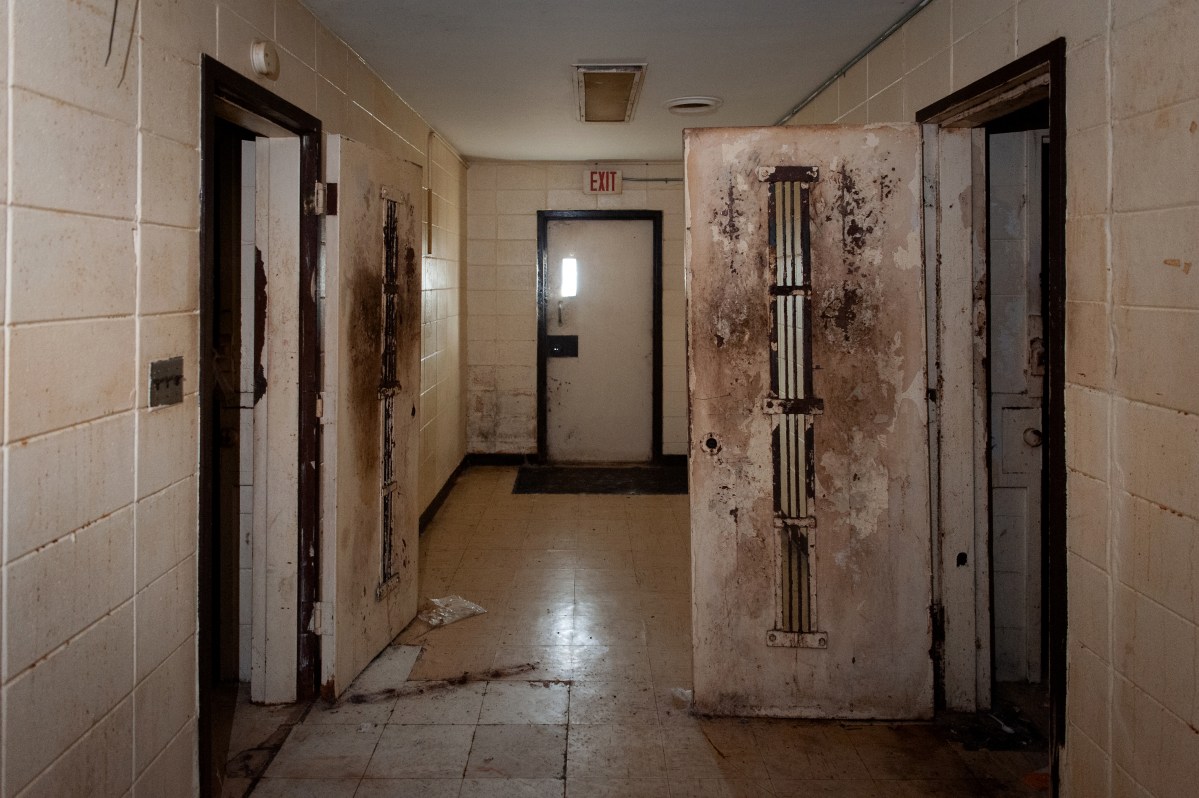
A jail with no rules
The jail that Mr. Grassaree oversaw for most of his career sits frozen in time on Industrial Road on the outskirts of Macon, next to the old Purina pet food mill that now produces feed for catfish farms.
The building has been locked and empty since about 2014, when Mr. Grassaree and his deputies packed up and moved to a new facility down the street. Inside the old jail, a blackened mix of dirt, rust and mold has crept over the white iron cell doors. Bags of trash and dusty bed linens litter the remaining furniture and the floor.
When Mr. Grassaree was put in charge of this building in the 1990s, he inherited a jailhouse that essentially operated without rules. Jail workers allowed inmates to come and go from the building without logging the inmates’ movements or supervising them closely.
The onlypolicies about the jail that appear in the 2003 Noxubee County Sheriff’s Policy Manual center on the use of force. None tell how to run the jail.
For years, certain inmates were let out of their cells to help cook, pass out food trays and clean.
Kennedy Brewer, who entered the jail in 2002, was one of the facility’s most trusted inmates. Eyebrows were raised when he showed up at a court hearing on his own, having driven himself to the courthouse without a deputy to escort him, according to Forrest Allgood, the district attorney at the time.
Mr. Brewer spent five years at the jail waiting to be retried after DNA evidence proved he had been wrongly convicted of sexually abusing and murdering a 3-year-old girl. When prosecutors gave up on a new trial, Mr. Brewer was released, and his case was featured in the Netflix documentary series “The Innocence Files.”
Testifying under oath as a witness in a lawsuit in 2007, Mr. Brewer said he served as a jail trusty, or an inmate with special privileges, and had access to keys that opened each cell. He said he would check newly arrested people into the jail and that he once escorted an inmate to a cell with no one else present.
Mr. Grassaree has denied that inmates were allowed to use jail keys without supervision.
On a June day in 2006, Mr. Brewer had no problem getting into the women’s cell block undetected.
He grabbed the jailer’s keys off the nail hanging on the wall and slipped down the short hallway that ran the length of jail. In a building smaller than a McDonald’s, he and a fellow inmate didn’t have to go far. There were no guards patrolling the halls and no surveillance cameras to catch any movements.
When Mr. Brewer unlocked the cell door, one of the women inside was laying down for a nap.
Then Brewer was on top of her, grabbing her arms and forcing her down, according to statements the first woman later gave to state agents.
“No, I don’t want to do this,” she begged, according to her statements.
Then she looked for her cellmate, Jessie Levette Douglas. She told investigators she saw another inmate, Laterris Goodwin, on top of her.
It was all over in moments.
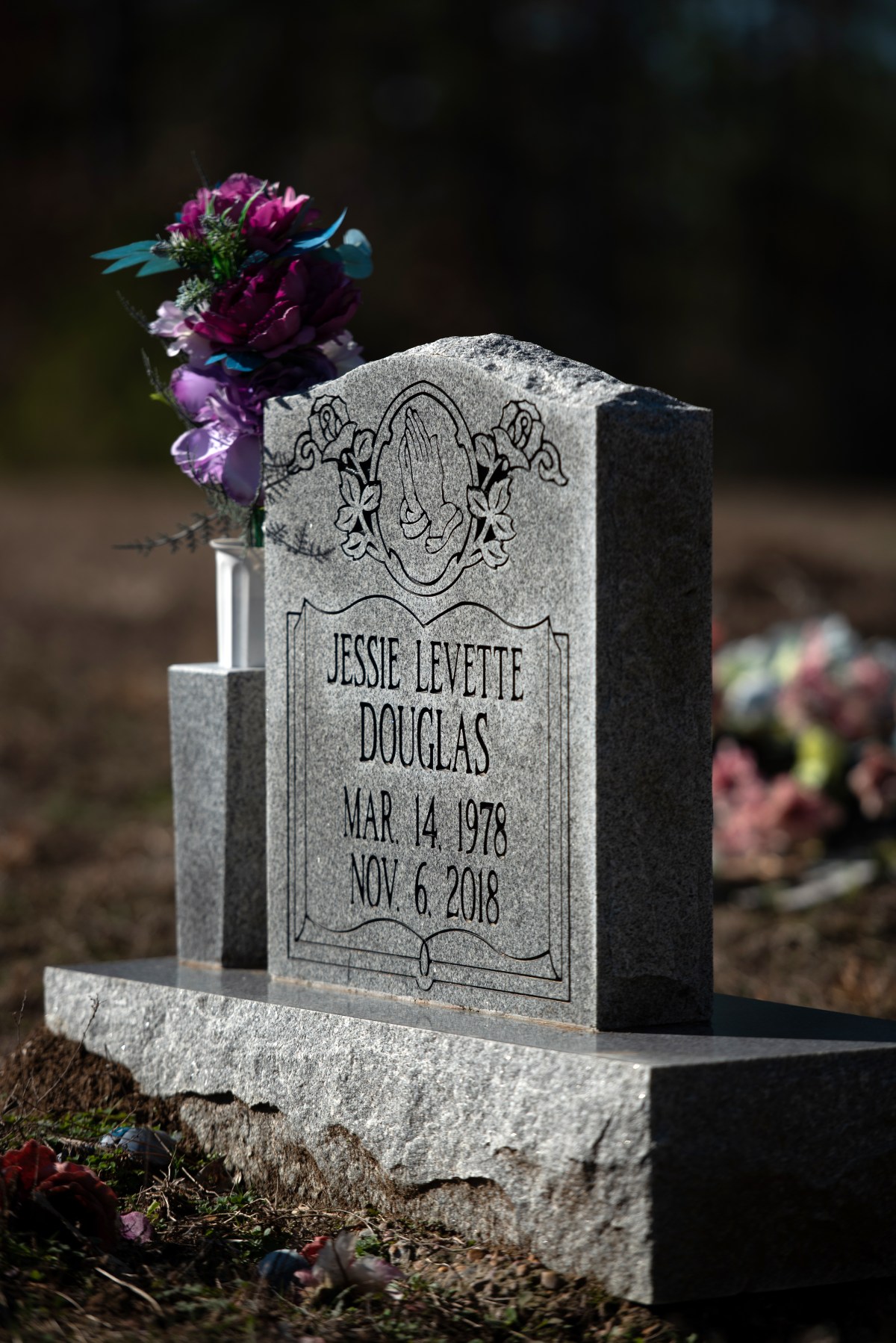
The woman who originally reported the rapes declined to be interviewed for this article. Ms. Douglas died of renal failure in a state prison in 2018.
When investigators interview rape victims, they are supposed to remain impartial. But when Mr. Grassaree, who was chief deputy at the time, found the woman crying on the floor, he stood over her and shouted, the woman said in a deposition taken as part of her subsequent lawsuit against the county. He and another member of the sheriff’s office yelled that she couldn’t tell anybody about the rape and that she was “going to make them lose their jobs and make the department look bad,” according to her sworn statement.
“They kept berating me as if I had done something wrong,” she said.
When state agents arrived the next day at the request of the sheriff’s office, Mr. Grassaree handed them everything they needed to dismiss the allegations, including signed statements from two of the men saying the women had invited them to have sex, and more important, a statement from Ms. Douglas saying everything she saw and experienced was consensual.
If Mr. Grassaree and his deputies had been in charge of the investigation, it might have ended there. But when state agents interviewed Ms. Douglas, her story changed.
She told investigators that she and her cellmate had been raped that day and that she lied in her first statement because Mr. Grassaree had pressured her to cover up what happened.
Mr. Grassaree “told me to tell everybody the sex was consensual and that for me to ‘help a brother,’ referring to Brewer,”Ms. Douglaswrote in a later statement. “He told me to tell everybody that we put on a freak show for the male inmates.”
In reality, Ms. Douglas told the agents, three men incarcerated at the jail — Mr. Brewer, Mr. Goodwin and Michael Slaughter — had entered her locked cell at different times on the same day and had raped her.
In statements to investigators, Mr. Slaughter, Mr. Brewer and Mr. Goodwin denied that they had raped the women, claiming that the sex was consensual.
In an interview from 2022, Mr. Brewerdenied ever having sex with anyone inside the jail. Neither Mr. Slaughter nor Mr. Goodwin could be reached for comment.
Both women were given polygraph tests, and the examiner concluded that they were telling the truth, according to state investigators’ records. Mr. Goodwin and Mr. Slaughter failed polygraph tests; Mr. Brewer declined to take one.
State agents shared their findings with federal and state prosecutors, and the case was presented to a Noxubee County grand jury. The grand jury decided not to issue charges.
Legal experts say Mr. Grassaree could have been investigated for obstructing justice in the case. That never happened, and neither did an investigation of practices in the jail, where agents concluded that four rapes had taken place.
Noxubee County’s insurance company settled the woman’s lawsuit in 2009. The Macon Beacon reported that she was paid $375,000.
Sabrina Campbell said her sister, Ms. Douglas — the woman who said she was raped by three inmates and who died many years later — wanted the public to know what happened to her. “I don’t want my sister to have died in vain,” Ms. Campbell said.
The rapes devastated her sister, who never stopped battling nightmares afterward, she said. “She was scared all the time. She would tell nieces and nephews about the jail, ‘Don’t ever come here, because your life is over.’”
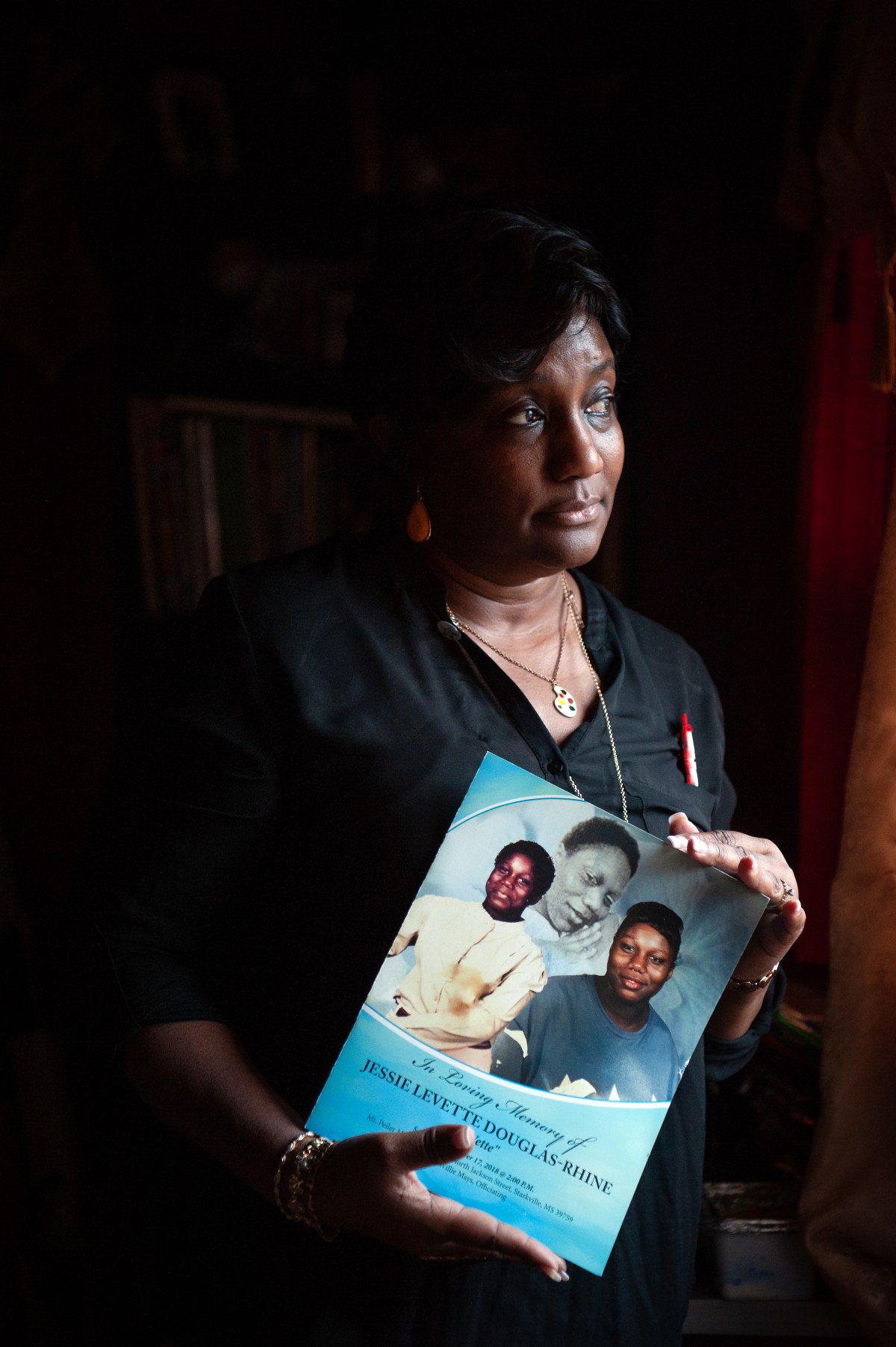
Another round of allegations
Allegations of sexual abuse at the Noxubee County jail did not end with the 2006 case.
In 2020, Elizabeth Layne Reed,a woman incarcerated at the jail, made explosive allegations against the men she encountered there. In a lawsuit she filed that year, she accused two deputies, Vance Phillips and Damon Clark, of coercing her into having sex.
She said the men gave her a cellphone and other perks so that she would have sexual encounters with them in remote spots around the jail or when the deputies checked her out of the facility. The deputies even put a sofa in her jail cell, she said.
Ms. Reed said in an interview that she wanted the public to know what happened to her in the hope that others would come forward. “It made me terrified to trust anybody,” she said. “Women in jail and prison need to be protected.”
According to her lawsuit, Mr. Grassaree knew all about his deputies’ “sexual contacts and shenanigans,” but did nothing to “stop the coerced sexual relationships.” Mr. Grassaree denied any knowledge of what deputies were doing. “Are you a boss?” he said. “Do your employees tell you everything they do?”
Instead of intervening, the lawsuit alleged, the sheriff “sexted” her and demanded that she use the phone the deputies had given her to send him “a continuous stream of explicit videos, photographs and texts” while she was in jail. She also alleged in the lawsuit that Mr. Grassaree touched her in a “sexual manner.”
The lawsuit was settled for an undisclosed amount.
News outlets in Mississippi made brief mention of the lawsuit, but government officials at all levels, including federal and state prosecutors, were silent for two years about what, if anything, they were doing to investigate the allegations it raised, and whether they had found evidence to support them.
A review by the Mississippi Center for Investigative Reporting and The New York Times of documents filed in the lawsuit, along with documents fromthe preceding2019 state investigation, reveals that Ms. Reedaccused other deputies besides Mr. Phillips and Mr. Clark of sexual harassment and abuse. None of the other deputies has been charged or named publicly. It is unclear whether the FBI investigated those allegations.
The federal bureau’s investigation into Mr. Grassaree, Mr. Phillips and Mr. Clark took more than two years to yield charges, even though investigators had confessions of sexual contact from the deputies as well as text messages between the woman and the three men. In fall of 2022, several weeks after reporters began asking authorities about the case, Mr. LaMarca successfully sought indictments against Mr. Grassaree and Mr. Phillips on bribery charges. Mr. Clark has not been indicted.
Ms. Reed hoped that other deputies, including Mr. Clark, would be held accountable, she said. “They’re still walking around free, not worried about any charges.”
Ms. Reed said that she felt sick to her stomach when she found out that neither Mr. Grassaree nor Mr. Phillips had been directly charged in connection with her allegations of sex abuse. Lawyers for Mr. Phillips did not immediately respond to requests for comment. Mr. Clark could not be reached for comment.
The indictments do not mention sexual abuse. Along with bribery, Mr. Grassaree was also charged with lying to the F.B.I. in denying that he had “requested and received” nude photos and videos from Ms. Reed. A trial is scheduled for summer.
Julie Abbate, who served as the deputy chief of the Justice Department’s Civil Rights Division from 2003 to 2018 and reviewed the allegations at the news organizations’ request, said the federal prosecutors could have explored criminal charges against Mr. Grassaree and his deputies for violating the civil rights of women in his facility.
The question of whether to bring federal charges in the case may have been complicated by guidance the Department of Justice issued in 2018, saying that law enforcement officers cannot be federally prosecuted for violating a person’s civil rights if the person “truly made a voluntary decision as to what she wanted to do with her body,” particularly if she received a benefit or special treatment in exchange for sex.
But Ms. Reed’s decisions in the episode in the Noxubee County jail were “not free-will choices,” said Andrea Armstrong, a law professor at Loyola University, and the cellphone Ms. Reed received from deputies “was the vehicle by which more abuse could be directed towards her.”
Mississippi law makes it a crime for law enforcement officers to engage in sexual acts with incarcerated people. Prosecutors are not required to prove the victims were physically overpowered or even that they told their abuser to stop.
But the district attorney’s office that handles criminal cases in Noxubee County chose to pass the 2020case on to federal prosecutors, instead of seeking charges under the state law, because of worries about getting a fair jury in the county. When asked about federal prosecutors’ decision to charge Mr. Grassaree and Mr. Phillips with bribery in the case, the district attorney, Mr. Colom, said, “I trust federal authorities to use the best statutes.”
Ms. Abbate said the allegations about abuses in the Noxubee County jail were indicative of a larger, pervasive problem at the facility and a harmful culture inside the sheriff’s office. That culture, she said, undoubtedly endangered inmates and allowed abuses to continue.
“The allegations that come to light are almost always just the tip of the iceberg,” said Ms. Abbate, who is now director of Just Detention International, an organization dedicated to ending sexual abuse in correctional facilities. Referring to the 2006 and 2020 cases, she said, “I guarantee you that these two instances are not the only ones.”
This article was co-reported by The New York Times and the Mississippi Center for Investigative Reporting at Mississippi Today.
This article first appeared on Mississippi Today and is republished here under a Creative Commons license.
Mississippi Today
Lackey family members show value of education
As children during the 1950s, Hilliard Lackey and Lillian Troupe often had to skip school to pick cotton with their sharecropping parents.
They grew up together in the small north Mississippi town of Marks, both raised by devoutly Christian families.
Marks has struggled with poverty for generations, and problems were compounded by Mississippi’s history of underfunding public education for Black students. Schools remained segregated, and both said it was common for Black children around them to drop out or miss school so they could work in the fields.
“That was the life we knew, the life we inherited,” Hilliard Lackey said.
Hilliard and Lillian met as classmates in sixth grade, started dating in high school and married in 1966. Despite the challenges of the time, their parents and church leaders encouraged them to be ambitious and succeed.
Today, several members of the Lackey family have doctoral degrees: Hilliard and Lillian Lackey; their daughters, Tahirih Lackey and Dr. Katrina Davis; the couple’s daughter-in-law, Tracy Knight Lackey; and his stepbrother and sister-in-law, Dr. Robert Long and Vanessa Rogers Long.

Pew Research Center found that as of 2023, about 26% of all Black Americans 25 and older have a bachelor’s degree or higher, and 11% have advanced degrees. In Mississippi, 18.5% of Black residents have a bachelor’s degree or higher.
Hilliard Lackey is a longtime professor of urban higher education and lifelong learning at Jackson State University. He attended what was then called Jackson State College, earning his bachelor’s in history and political science, pre-law track, in 1965. (It became Jackson State University in 1974.)
Hilliard Lackey – who later earned a master’s degree in educational administration, an education specialist degree in the same topic, and a doctorate in higher education administration – was the first in his family to go to college.
“I left home and came to a whole new city, a whole new environment. It’s a college,” he said, looking back on the experience. “And I was astounded, and scared, and frightened and bewildered.”
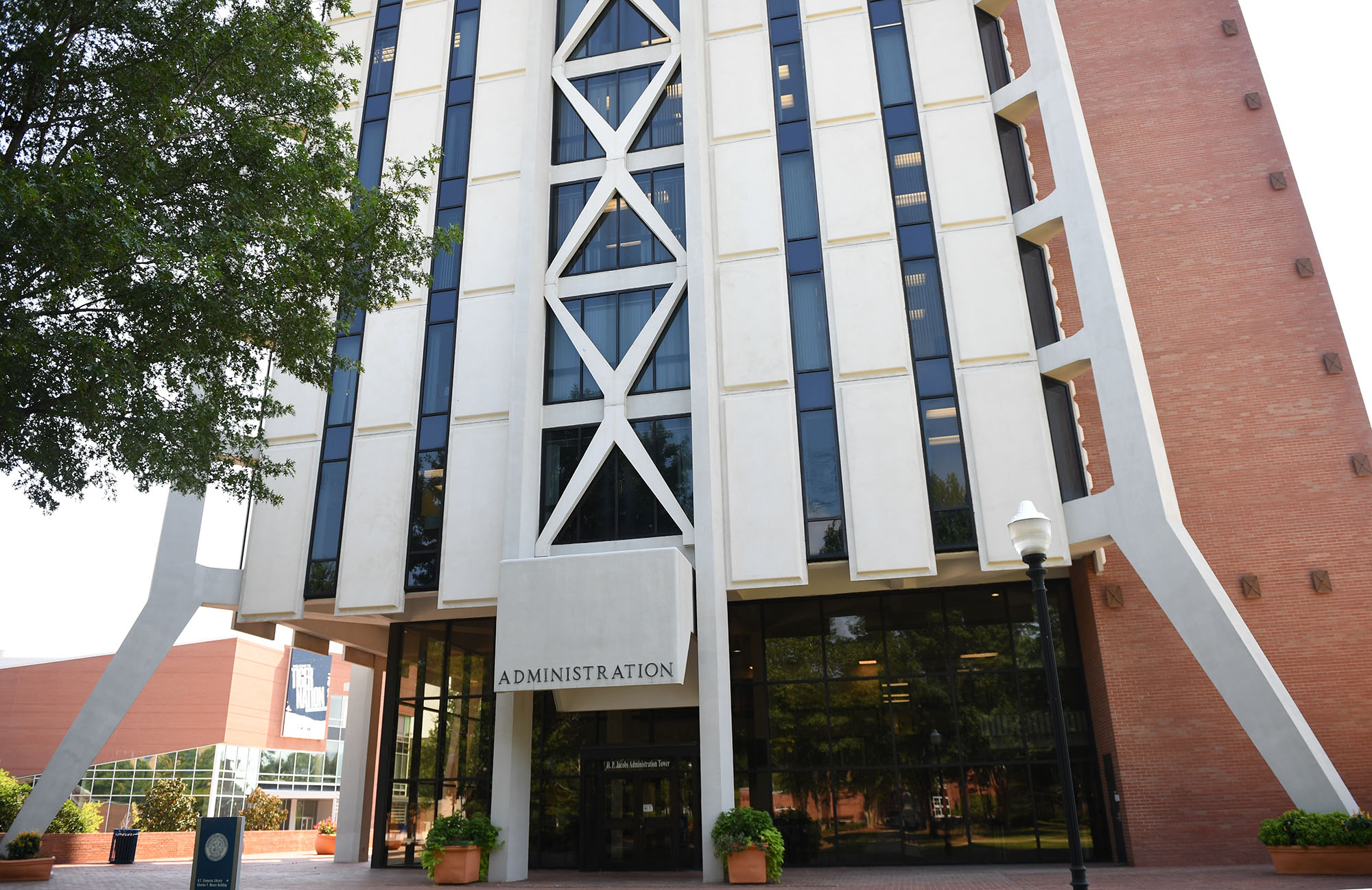
Lillian, then still named Troupe, attended Coahoma Community College before transferring to what was then called Alcorn Agricultural and Mechanical College – since 1974, Alcorn State University. She graduated from Alcorn with a bachelor’s in business education in 1966 and earned a masters in education administration from Jackson State in 1974.
She was still living and working in Marks during community college.
“I went to Coahoma … rode the school bus, came home, got out of my clothes, went to the field, picked cotton,” she said. “And so I picked my way out of the cotton field to Alcorn.”

In June, West Coast Bible College & Seminary awarded Lillian Lackey an honorary doctorate for her years of community service.
Two of Hilliard and Lillian Lackey’s four children have doctorates. Davis has a medical degree and is a urogynecologist. Tahirih Lackey has a doctorate in civil environmental engineering and is a research hydraulic engineer at the U.S. Army Corps of Engineers Research and Development Center.
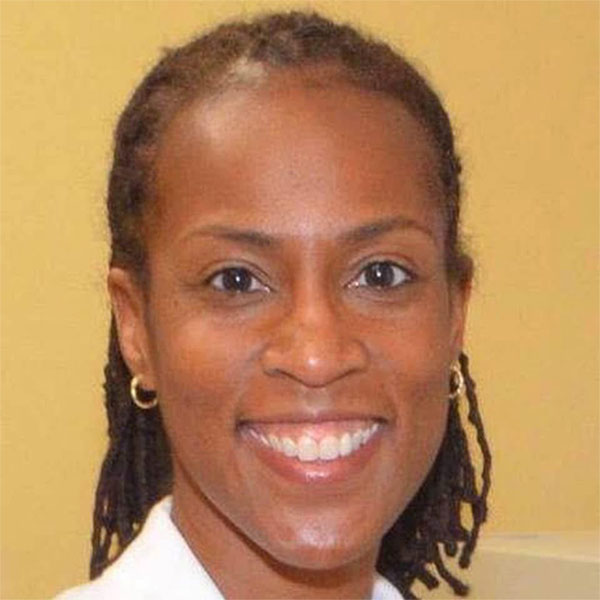
Both sisters say their parents’ emphasis on education and success and their religious faith influenced their career paths.
Davis recounted that every Sunday, each member of the family stood in front of the fireplace and discussed what they’d done that week to achieve their goals. She and her siblings attended a variety of academic and athletic summer programs before and during college.
Hilliard and Lillian Lackey converted from Christianity to the Baha’i faith as adults. They raised their children “essentially as Christian Baha’is,” according to Hilliard Lackey, and let them choose what religion to follow when they were 15 years old.
“They pretty much told us, ‘Whatever you want to be, you can be, and we’ll be there to help you,’” Davis said.
“I would recognize that my parents, they were always helping other people. Like, throughout my whole life they demonstrated those concepts,” Tahirih Lackey said.

“None of us thought we had any barriers,” Davis said. “If there were barriers, they were from our own mental blocks.”
Hilliard Lackey’s stepbrother, Dr. Robert Long, is a dentist in Clarksdale. Long also credits his upbringing for his success, saying his parents raised him and his siblings with a strong work ethic and Christian values.
“They instilled in us that nobody is going to give you anything, nobody is obligated to give you anything,” Long said.
Long grew up in a small rural town in Quitman County, 15 miles from Marks. He had a similar upbringing to Hilliard Lackey. His parents encouraged him to get an education.
He attended Earlham College, where he majored in biology and found a mentor who inspired him to become a dentist.
He described his undergraduate experience as a “culture shock” and an “academic shock.” He chose to persevere through the challenges.
“I knew I could go home,” he said, “but I didn’t want to go home.”

Vanessa Rogers Long grew up in a middle-class family in the small community of Memphis, Mississippi, and, like most of her family, has lived a life dedicated to service.
She was the first Black hospital administrator for the Mississippi Department of Corrections. She founded Mississippi Delta Connection, which is part of Links Inc. She also mentors teens on service and leadership skills. She has received several honors, including having her sorority, Alpha Kappa Alpha, dedicate a bench to her at her alma mater, LeMoyne-Owen College.
“Service is what I do,” she said.
Hilliard and Lillian Lackey are also deeply involved in community service, including their “Lackey Scholars” program inspired by a former teacher. Hillard Lackey estimates they’ve helped more than 500 high school students from Quitman County attend and graduate from Jackson State since 1967. In addition, they mentor dozens of students from Quitman County’s Madison Shannon Palmer High School to act as role models for their peers and the community.
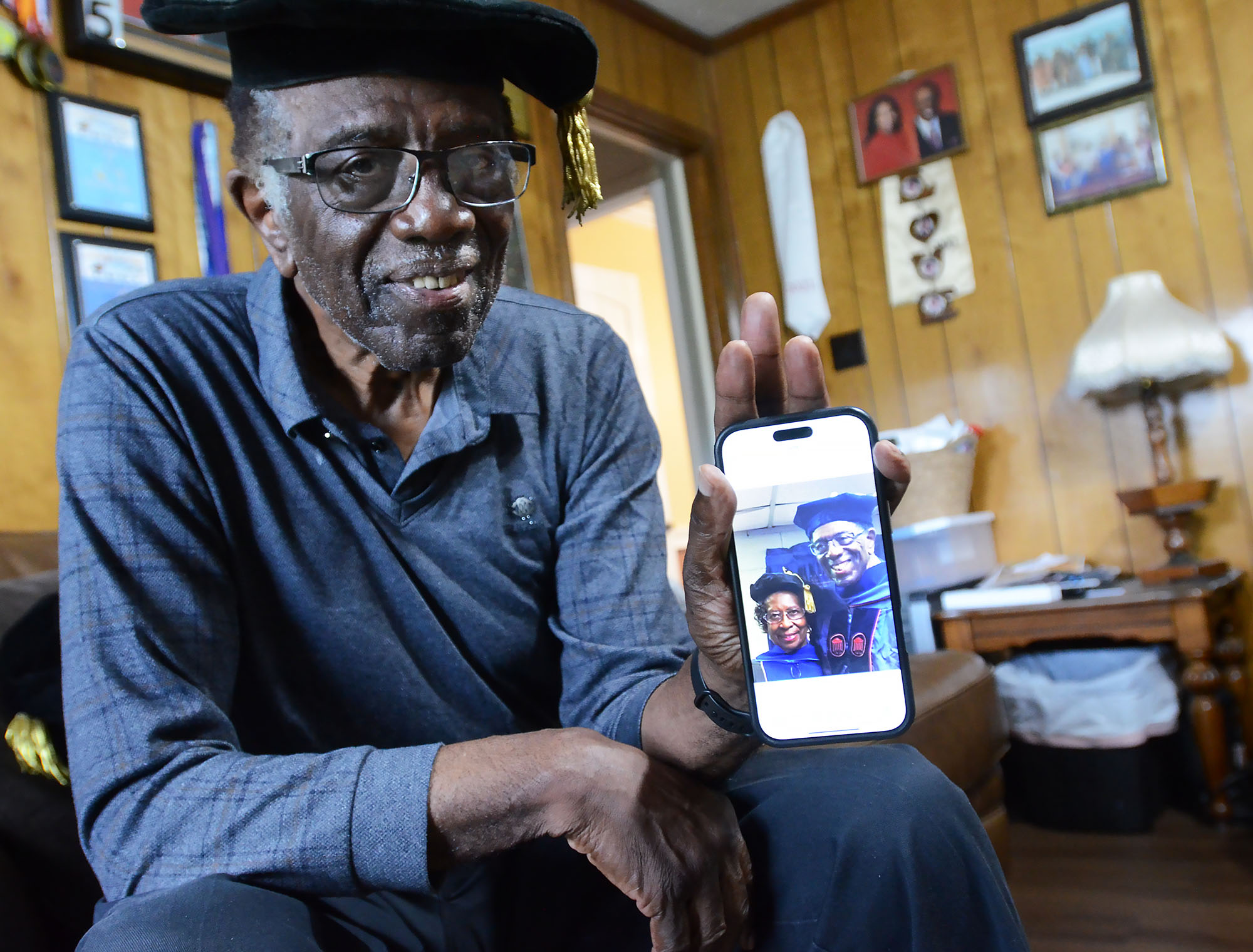
“That’s just been our thing, it’s always been,” Lillian Lackey said. “To help somebody, if they were hungry, if they were cold, if they were whatever.”
When asked what he would tell first-generation college students, Hilliard Lackey said: “Education is an equalizer. It gives an advantage to the disadvantaged. It levels the legacy playing field.”

This article first appeared on Mississippi Today and is republished here under a Creative Commons Attribution-NoDerivatives 4.0 International License.
The post Lackey family members show value of education appeared first on mississippitoday.org
Note: The following A.I. based commentary is not part of the original article, reproduced above, but is offered in the hopes that it will promote greater media literacy and critical thinking, by making any potential bias more visible to the reader –Staff Editor.
Political Bias Rating: Center-Left
This article emphasizes the value of education, community service, and overcoming historical racial and economic challenges, themes often highlighted in center-left discourse. It acknowledges systemic issues like underfunding of Black education in Mississippi while focusing on personal achievement and community upliftment without overt political partisanship. The tone is positive and supportive of education as a tool for social mobility, aligning with moderate progressive values but avoiding strong ideological language.
Mississippi Today
This superintendent took a failing Delta school district to a ‘B’ rating. Now, she’s leaving
INDIANOLA — The top of the Jeep was down, and Miskia Davis was behind the wheel, leading a parade through downtown Indianola.
It was 2019, just two years after the now 50-year-old Davis became superintendent of Sunflower County Consolidated School District. Back then, she wasn’t sure this moment would ever come.
She recalled feeling the first cool breeze of October as she waved at people who lined the street, smiling and celebrating.
But it had — the district’s first “C” rating, its first passing grade, and the community had shown up to a parade to celebrate the achievement. Generations of teachers and Sunflower County graduates stood on the sidewalk, proudly cheering the assembly of cars and students.
“It was … Oh my God,” Davis said. “My children were like, ‘We did something.’”
The work hadn’t been easy, but it had been worth it, Davis thought — the number crunching, the doubt and lukewarm welcome she felt from the community, the tough decisions she’d had to make.
Now, she’s ready to move on.
Daughter of the Delta
From starting kindergarten to subbing for elementary classes, Davis’ childhood and career in Sunflower County and her identity as a daughter of the Delta were her strengths in the classroom, she said.
“I grew up in Drew, poor and with two young parents,” Davis said. “We didn’t have elaborate meals, and when I went home, the lights may have been off. But it made me who I am, and these children were experiencing the same things I experienced as a child.”
So Davis was relatable. But as a young high school teacher at Ruleville Central High School, some of her students looked older than her and many were taller than she was. She was forced to learn how to command respect, too.
One particular child taught her an invaluable lesson. He was a star football player in her biology class, and he was failing the course by two points. He caused trouble in class and Davis was determined to fail him, despite more experienced teachers prodding her not to, to look past her own ego.
So Davis gave him another chance. She had him do extra work and spent hours talking to him. She learned why he behaved poorly in class — he was one of seven children to a young, single mother.
“He was angry at the world, and I just happened to be in the world,” she said. “It taught me the power of relationships. I think that’s the most important catalyst in transforming education.”
It was during that time that her superintendent “saw something” in her and pushed her to become a school leader. That kickstarted her journey in administration.

Davis soon learned she had a particular gift for turning failing schools around. Under her leadership as principal, Ruleville Middle School went from failing to an “A” letter grade in three years.
Her school improvement strategy began to take shape, similar to her teaching style. Davis was both a disciplinarian and someone to whom teachers and students could relate. She prioritized building strong relationships with teachers who were invested in their students. But she didn’t shy away from making controversial decisions, either. In Ruleville, she fired nearly all of the staff when she arrived.
But as Davis was gaining her footing as an administrator, Sunflower County School District was struggling.
After consistent failing grades resulted in the state takeovers of Indianola, Sunflower and Drew school districts, the Legislature decided to consolidate the three systems in 2012.
District consolidation is a massive undertaking for any community, but especially for Sunflower County — smack dab in the middle of the Delta, an under-resourced region with a shrinking population, high poverty rates and a deep history of racial exploitation.
Davis arrived in 2014 to a school district that had lost hope — a district that she didn’t recognize.
All Sunflower knew was ‘failure’
Davis never wanted to be superintendent.
She spent three years working under the leader of the consolidated district. But when the superintendent was dismissed in 2017, Davis was appointed to the head role in an interim capacity. She got the job in January of 2018 without ever applying.
So with another state takeover looming, Davis went to work. The biggest challenge? The district and the community seemed resigned to failure.
“We had been failing so long, that’s all we knew,” she said. “No one was even sad.”
Early on, Davis visited a school to discuss recent test results. She was so struck by teachers’ apathy that she stopped the meeting midway and had them tear off a scrap of paper and write “yes” or “no” to a question: Did the teachers believe their school could ever be successful?
More than half said no.
“They were teaching my children,” Davis said, tearing up. “And they didn’t think they would ever be successful.”
Davis went to the school board to tell members that she wouldn’t be renewing many of those teachers’ contracts. That’s when she realized she didn’t just need to boost test scores — she needed to change attitudes.

The hashtag #WINNING was born.
“We started to celebrate every little accomplishment,” Davis said. “We got T-shirts, shades, whatever. That was our mantra.”
Children received certificates for a week of perfect attendance. When students did well on benchmark assessments, teachers were ushered into the hallway to be celebrated by students and colleagues. Davis created the “Killin’ It” awards, given to students and teachers for meeting their testing benchmarks.
They were just certificates, at the end of the day. But it led to a changed school culture, a renewed belief that they could succeed.
As an administrator, Davis leaned on what she knew worked as a teacher, relationship-building and strong discipline (she even sent her nephew to alternative school for fighting), and combined it with a data-driven approach and an eagle-eyed focus on testing.
She put an academic coach in every building, whose sole responsibility was supporting teachers.
Davis took teacher Dylan Jones out of the classroom and put him in the central office, where he was tasked with tracking district metrics.
Jones uncovered which consultants were working and which were uselessly costing the district millions. The district went from contracting with 30 firms to just four.
Jones also created an accountability system for teachers. With one click, Davis could see how each teacher’s students were performing, and she gave everyone access to the data. If teachers weren’t meeting their goals, Davis hosted regular meetings and had them explain — in front of everyone — what they needed to succeed.
Davis’ methods weren’t popular at first. Educators went to the school board and complained that the system was “punitive.” Some even quit. But Davis was steadfast and implored board members to see the work she and her team could do, if given the chance.
The district’s rating didn’t budge in 2018.
But in fall 2019, after Davis’ first full year as superintendent, Sunflower County Consolidated School District had earned its first “C” rating.
What happened after the first ‘C’
Those early years were difficult, Davis remembered, because she felt so isolated, just her and her team “in the trenches.”
She hosted community meetings, imploring local parents, leaders and business owners to support the district.
“They told me to come back when we were no longer failing,” Davis said.
So after that first “C,” when she started seeing the district’s hashtags on Facebook, when more people started coming to school events, when she started to get invited to speak at the local Rotary Club, it was bittersweet.
Teachers, too, took a while to come around. Their performance was being closely monitored through the accountability system, but soon they realized that Davis wasn’t giving them mandates outside of improving test scores. She gave them autonomy in their classrooms. Teachers had the final say on how to improve their students’ achievement. That kind of trust isn’t common, Sunflower County teachers told Mississippi Today.
It wasn’t until 2021, when voters passed a $31 million bond issue that would pay for major school renovations, that Davis felt the full support of the community.
Davis even won over Betty Petty, a local matriarch and fierce advocate for kids and parents.
“She has actually shown a presence at the schools, constantly meeting with teachers and making sure all children are learning,” Petty said. “We had community meetings where she would actually come out and listen to our concerns.”
Petty attended the ribbon-cutting ceremony at Gentry High School last July. Before renovations, plumbing problems caused flooding when it rained, so students had to wade through water to get from class to class. Davis said she’d never forget the sight of generations of Gentry graduates in the school atrium, looking around in wonder at the new facility.
“At first, I chose the community,” Davis said. “But eventually, the community chose me.”

The legacy she leaves behind
Strong schools make strong communities, but it can take time for results to show. Indianola Mayor Ken Featherstone hopes to see the dividends soon.
Featherstone took office four years ago, around the same time the district got its first “B” grade. It has maintained the grade ever since, the highest in the entire region.
He, like Davis, was reared in the Delta, but empathizes with her struggle garnering the support of a community deeply impacted by gun violence and low investment from state officials.

“People are very result-oriented,” he said, leaning back at his desk in city hall. “You till the soil, but it’s not until you start your seed breaking the ground do you see other people starting to water it. That’s just human nature.”
He’s hoping the district’s academic gains will be a boon for Indianola’s struggling economy.
“We’re seeing things slowly come to our area,” Featherstone said. “To get manufacturing jobs to come to our area, we have to improve our public school system. Directors and presidents of manufacturing plants … they need to know where their kids are going to attend school.”
Davis announced in October 2024 that she would be leaving the superintendent job at the end of the school year. Now, she travels the state, consulting with other districts on how to replicate what she did in Indianola, as a director of District and School Performance and Accountability for The Kirkland Group, an education consulting firm based in Ridgeland.
Her departure was a tough blow, Featherstone said, and leaves the district’s hard-fought success hanging in balance.
Petty and her network of parents are concerned, too.
“I don’t think any of us know what will happen moving forward,” she said.
Davis said there was no big epiphany. She just felt her mission was accomplished. She said she’s adamant that the district’s “best days are ahead,” under new superintendent James Johnson-Waldington.
Johnson-Waldington, who was most recently serving as superintendent of Greenwood Leflore Consolidated School District, is also Sunflower-grown, and he was Davis’ principal when she taught at Ruleville Central High School. He plans on employing strategies similar to Davis: holding teachers accountable and celebrating their achievements.
After all, if it’s working, why change it?
“I feel a good kind of pressure,” Johnson-Waldington said. “I like challenges, and this is a new challenge for me. I’m not taking a failing school district to success. This is about maintaining and growing, and I accept that challenge for the very reason that this is home. I’m going to work very hard to maintain what Miskia has done.”
Davis leaves behind a legacy, Featherstone said, that makes her hometown proud. He was in the crowd that day at the parade. He remembers the excitement, the pride.
“Older teachers were there, and you could see the look on their faces that they knew they had reared someone who threw the oar out to a sinking district and brought it back up,” he said.
“She made us see ourselves in a better light, and we can’t thank her enough.”
This article first appeared on Mississippi Today and is republished here under a Creative Commons Attribution-NoDerivatives 4.0 International License.
The post This superintendent took a failing Delta school district to a ‘B’ rating. Now, she’s leaving appeared first on mississippitoday.org
Note: The following A.I. based commentary is not part of the original article, reproduced above, but is offered in the hopes that it will promote greater media literacy and critical thinking, by making any potential bias more visible to the reader –Staff Editor.
Political Bias Rating: Center-Left
This article presents a positive and detailed profile of an educational leader working to improve a struggling school district in a historically under-resourced and economically challenged region. The focus on community uplift, education reform, accountability, and addressing systemic challenges aligns with themes often emphasized by center-left perspectives. However, the article maintains a largely neutral and factual tone without overt political framing or partisan language, emphasizing pragmatic solutions and community collaboration rather than ideological positions.
Mississippi Today
Theology student’s ‘brain drains back home’ despite economics, safety concerns
Editor’s note: This Mississippi Today Ideas essay is published as part of our Brain Drain project, which seeks answers to why Mississippians move out of state. To read more about the project, click here.
Though I imagine I’ll never return, more often than not, my brain drains back to Mississippi. My whole adult life has been a journey up and down the Hudson River, from New York City to the Adirondacks, but inevitably, I find my thoughts leaking toward another river.
I grew up fearing being left behind in the Rapture, but in earnest, it feels like I’m the one who left everyone behind. I’m not proud of this, but I’m certainly not ashamed. I have roots in the Northeast now, and a life that isn’t easily transplanted elsewhere, especially to the Red Clay Hills of Neshoba County. Life took me from Mississippi, and life keeps me away.
I left Mississippi for New York in 2015, and I estimate that I’ve returned only 11 times. My sporadic trips home have been mostly because I’m consistently broke, but now it’s a combination of that and concerns for my safety.
My mother, also limited by finances and Mississippi’s minimum wage, has visited me twice in 10 years, once in the spring of 2016 and then when I graduated from Yale Divinity School in 2023.
I haven’t been back since I came out as a trans woman and began medically transitioning in the winter of 2024. I try not to be overwhelmed with guilt or grief for the imagined, shared life I don’t experience with my mother. Rather, I’ve learned to cherish what we do have.
It’s strange to be who I am, mostly for her but also for me. She has learned to love me regardless of whether or not she understands what I’m doing. In her mind, if you go to college, you become a nurse or a lawyer. You settle down, probably in Jackson, maybe Oxford, most likely in my hometown of Philadelphia, and commute by car more than an hour to work. You probably see your mom weekly. She sees her grandkids as often as possible.
That is not how life turned out. We do talk on the phone. Sometimes we get into once-a-week phone call sprees, other times, I drop off for weeks, maybe a month, when I’m depressed.
When I come home, she picks me up from the airport and drives me back a few weeks later. We crack the windows, smoke cheap Mississippi cigarettes and try to cram 10 years of a strange-to-us mother-daughter relationship into a 90-minute ride to the airport in Jackson. Usually, we talk about suffering, death, sin, God, the end of the world, and what the hell I am doing with my life.
You go to college to get a job, to make more money than your parents and to buy a strange suburban-but-rural McMansion just beyond city limits where you start a family around the age of 25 at the latest.
According to my mother, I went to the University of Mississippi and got brainwashed. She tells me often that it’s like she doesn’t know who I am, and she’s mostly right. She hasn’t met anyone I’ve dated in person since high school. She hasn’t seen me in person since transitioning, and I changed my name to Romy. I explain my relationship with my family to friends, peers, new partners and congregations, always with an articulate sense of heartbreak that I’ve learned to intellectualize and package up in a story of “working-class origins,” single motherhood, a white Christian nationalist rural community and my stumbling through adulthood “refusing not to live by my values.”
I originally left Mississippi to be an AmeriCorps Vista volunteer in the Capital Region of New York. I’d never been there. I took a Greyhound from Memphis to New York City to Albany, New York with two large suitcases and a backpack. Several of my friends from college had moved to New York City, and their couches and shared beds provided a safe launching pad for more of us. I had also fallen in love with a fashion student turned designer that I met on a trip to the city the year prior. Though that romance flamed and flickered for many years and ultimately flamed out, my reason for staying in the North was the life I was increasingly stumbling into.
I went there because, at the time, I had an insatiable desire to live out my values and politics. After all, I was maybe one of two socialist public policy majors at the Trent Lott Leadership Institute at the University of Mississippi, and I didn’t want to be a lawyer, a lobbyist or a policy wonk.
I wanted to be poor and engage in building sustainable autonomous communities. I wanted to learn how to be a person who had no work/life distinction, but a vocation and calling.
Through AmeriCorps, I luckily found a small group of activists, urban homestead types, organizers and ex-social workers living together helping others at the margins and themselves start businesses and worker-cooperatives while struggling through mental health crises, and taking on an impossible but seemingly always plausible dream of a directly democratic community owned, operated and governed only by those who live there.
This was my first “job” out of college. It was my dream come true, and the most difficult thing I’d ever done. I burnt out pretty hard after two years, and probably made somewhere between $25,000 and $30,000 during that whole time. Since then, the most I’ve made in a year is my current PhD stipend of about $34,000.
I was, however, helped along by friends, colleagues and the activist communities that I was stumbling into. Through them, I was encouraged to go to Union Theological Seminary, land a job at a prestigious artist residency in the mountains, go to Yale Divinity School, discern that I was called to be a priest and come to know myself as a trans woman.
My life outside of Mississippi has been sustained solely by relationships that transgress the boundaries between work and life, co-workers and friends. I regularly reflect on and often worry about how fragile this all is, and if my own vocational and intellectual pursuits have been worth what I’ve left behind or never had.
I’m not sure I’ll ever know. However, I’ve managed to find profound meaning in it all so far, and it keeps me digging myself into this hole in which I will hopefully find what I am looking for, or dig my own damn grave.
Originally from Philadelphia, Romy Felder (she/her) is currently a PhD student at Union Theological Seminary. She is also pursuing the priesthood in the Episcopal Diocese of New York. She has a background in worker-cooperative development, community organizing, popular education and arts management. Romy lives cavalierly but contentedly in Brooklyn, New York.
This article first appeared on Mississippi Today and is republished here under a Creative Commons Attribution-NoDerivatives 4.0 International License.
The post Theology student's 'brain drains back home' despite economics, safety concerns appeared first on mississippitoday.org
Note: The following A.I. based commentary is not part of the original article, reproduced above, but is offered in the hopes that it will promote greater media literacy and critical thinking, by making any potential bias more visible to the reader –Staff Editor.
Political Bias Rating: Left-Leaning
This essay reflects a distinctly personal and ideological perspective rather than neutral reporting. The author frames Mississippi as economically limiting and socially unsafe, particularly for marginalized identities such as transgender individuals, while presenting Northern activist and academic communities in a sympathetic and aspirational light. References to socialism, worker-cooperatives, and critiques of conservative Mississippi culture suggest a worldview aligned with progressive or left-leaning politics. The tone is introspective and critical of traditional Southern expectations, while valorizing alternative, activist-driven lifestyles. As such, the piece is less about balanced reporting and more an expression of lived experience through a progressive lens.
-
News from the South - Texas News Feed6 days ago
New Texas laws go into effect as school year starts
-
News from the South - Florida News Feed6 days ago
Floridians lose tens of millions to romance scams
-
News from the South - Kentucky News Feed6 days ago
AmeriCorps is under siege. What happens in the communities it serves?
-
News from the South - Florida News Feed7 days ago
Protesters go on strike in Israel demanding ceasefire and release of Gaza hostages
-
News from the South - Alabama News Feed6 days ago
Final steel girders placed on new Gulf Shores bridge, completion on track
-
News from the South - West Virginia News Feed5 days ago
Religious exemption debate front and center amid new school year in WV
-
News from the South - Tennessee News Feed6 days ago
Son hopes to get emergency visa following mother's death in East Tennessee
-
News from the South - Arkansas News Feed5 days ago
Trump, Zelenskyy exit White House talks hopeful about security guarantee for Ukraine
